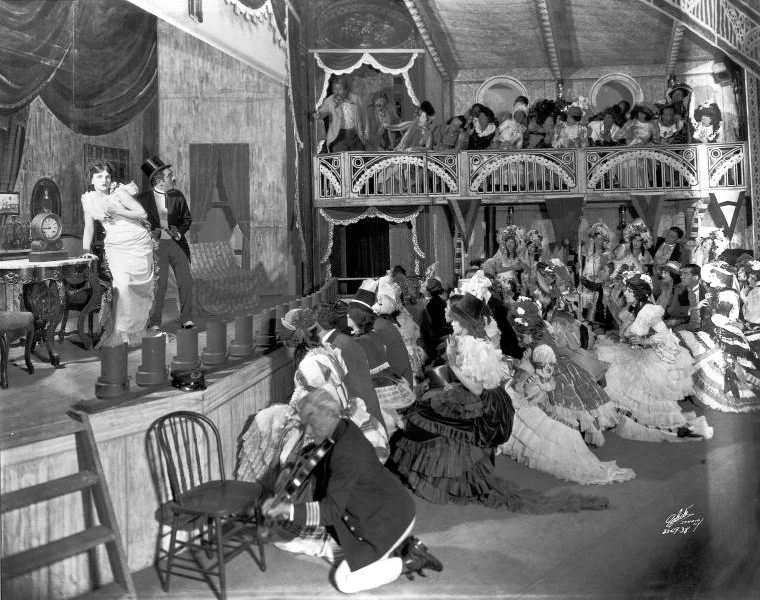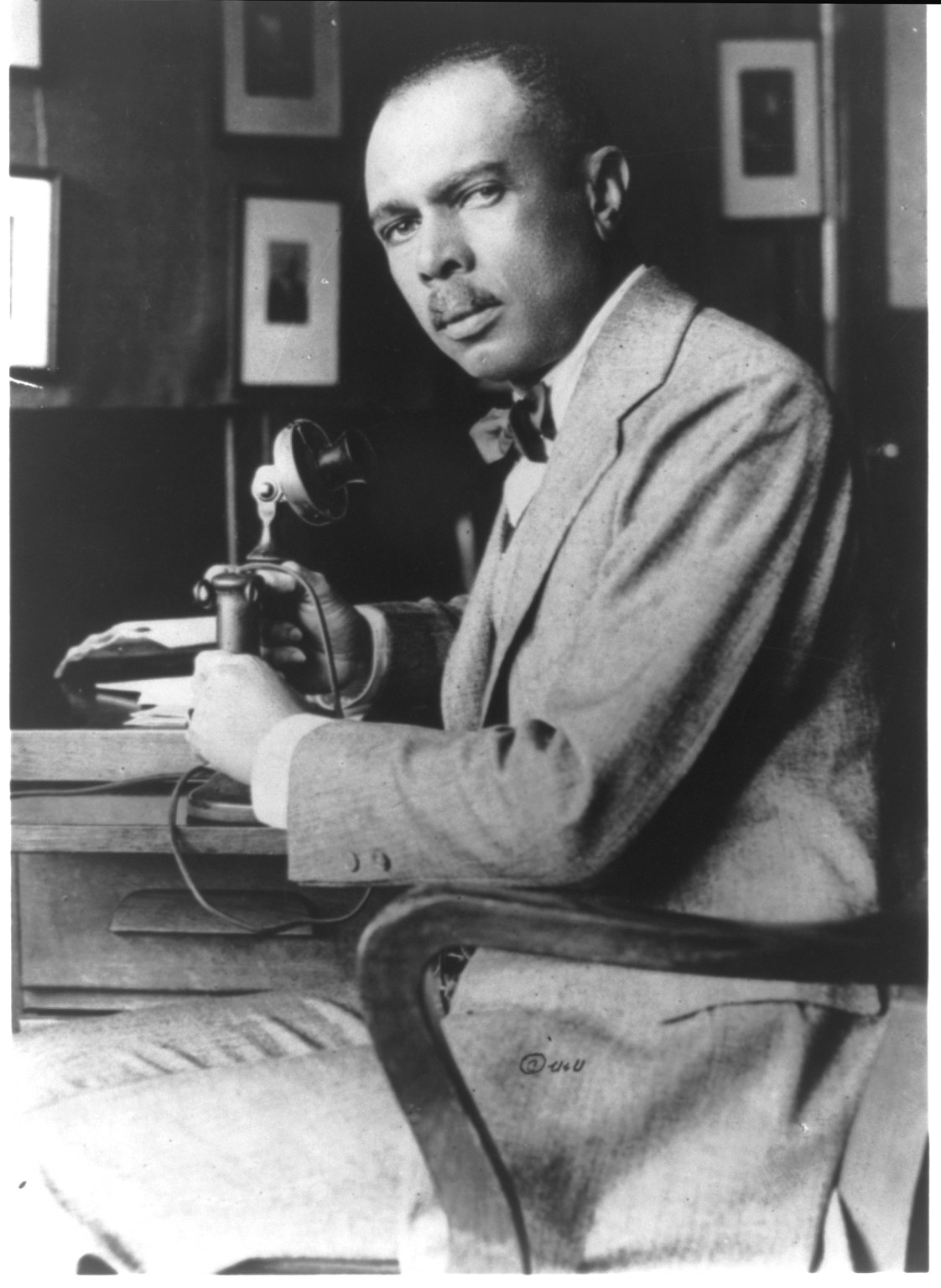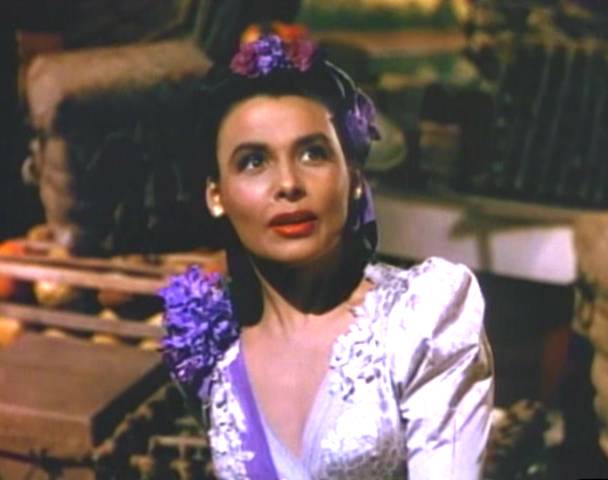|
Mis'ry's Comin' Aroun
Mis'ry's Comin' Aroun is a once-neglected song from the 1927 musical ''Show Boat'' by Jerome Kern and Oscar Hammerstein II. It was cut from the production during the Washington D.C. tryout on the orders of producer Florenz Ziegfeld, supposedly because it was one of the factors that made the show too long (it ran four-and-a-half hours when it premiered). However, musical theatre historian Miles Kreuger and conductor John McGlinn, also suggest that it was the dark, dramatic tone of the piece that most concerned Ziegfeld. Kern was reportedly so incensed by the deletion of "Mis'ry's Comin' Aroun" that he made it the principal motif of Show Boat's original overture and asked orchestrator Robert Russell Bennett to work sections of it into the background music as well, where it is now played by the orchestra during some of the dialogue scenes involving the mixed race actress Julie La Verne. The song, which runs about five minutes, is an African-American lament of foreboding and impending ... [...More Info...] [...Related Items...] OR: [Wikipedia] [Google] [Baidu] |
Show Boat
''Show Boat'' is a musical with music by Jerome Kern and book and lyrics by Oscar Hammerstein II. It is based on Edna Ferber's best-selling 1926 novel of the same name. The musical follows the lives of the performers, stagehands and dock workers on the ''Cotton Blossom'', a Mississippi River show boat, over 40 years from 1887 to 1927. Its themes include racial prejudice and tragic, enduring love. The musical contributed such classic songs as "Ol' Man River", " Make Believe", and " Can't Help Lovin' Dat Man". The musical was first produced in 1927 by Florenz Ziegfeld. The premiere of ''Show Boat'' on Broadway was an important event in the history of American musical theatre. It "was a radical departure in musical storytelling, marrying spectacle with seriousness", compared with the trivial and unrealistic operettas, light musical comedies and "Follies"-type musical revues that defined Broadway in the 1890s and early 20th century. According to ''The Complete Book of Light Opera ... [...More Info...] [...Related Items...] OR: [Wikipedia] [Google] [Baidu] |
Passing (racial Identity)
Racial passing occurs when a person classified as a member of a racial group is accepted or perceived ("passes") as a member of another. Historically, the term has been used primarily in the United States to describe a black or brown person or of multiracial ancestry who assimilated into the white majority to escape the legal and social conventions of racial segregation and discrimination. In the United States Passing for white Although anti-miscegenation laws outlawing racial intermarriage existed in America as early as 1664, there were no laws preventing or prosecuting the rape of enslaved girls and women. Rape of slaves was legal and encouraged during slavery to increase slave population. For generations, enslaved black mothers bore mixed-race children who were deemed "mulattos", "quadroons", "octoroons", or "hexadecaroons" based on their percentage of "black blood". Although these mixed-race people were often half white or more, institutions of hypodescent and the 20 ... [...More Info...] [...Related Items...] OR: [Wikipedia] [Google] [Baidu] |
1927 Songs
Nineteen or 19 may refer to: * 19 (number), the natural number following 18 and preceding 20 * one of the years 19 BC, AD 19, 1919, 2019 Films * ''19'' (film), a 2001 Japanese film * ''Nineteen'' (film), a 1987 science fiction film Music * 19 (band), a Japanese pop music duo Albums * ''19'' (Adele album), 2008 * ''19'', a 2003 album by Alsou * ''19'', a 2006 album by Evan Yo * ''19'', a 2018 album by MHD * ''19'', one half of the double album ''63/19'' by Kool A.D. * ''Number Nineteen'', a 1971 album by American jazz pianist Mal Waldron * ''XIX'' (EP), a 2019 EP by 1the9 Songs * "19" (song), a 1985 song by British musician Paul Hardcastle. * "Nineteen", a song by Bad4Good from the 1992 album ''Refugee'' * "Nineteen", a song by Karma to Burn from the 2001 album ''Almost Heathen''. * "Nineteen" (song), a 2007 song by American singer Billy Ray Cyrus. * "Nineteen", a song by Tegan and Sara from the 2007 album '' The Con''. * "XIX" (song), a 2014 song by Slipknot. ... [...More Info...] [...Related Items...] OR: [Wikipedia] [Google] [Baidu] |
Harold Prince
Harold Smith Prince (born Harold Smith; January 30, 1928 – July 31, 2019), commonly known as Hal Prince, was an American theatre director and producer known for his work in musical theatre. One of the foremost figures in 20th century American theatre, Prince became associated throughout his career with many of the most noteworthy musicals in Broadway history, including ''West Side Story'', ''Fiddler on the Roof'', ''Cabaret'', ''Sweeney Todd'', and ''Phantom of the Opera'', the longest running show in Broadway history. Many of his productions broke new ground for musical theater, expanding the possibilities of the form by incorporating more serious and political subjects, such as Nazism (''Cabaret''), the difficulties of marriage (''Company''), and the forcible opening of 19th-century Japan (''Pacific Overtures''). Over the span of his career, he garnered 21 Tony Awards, including eight for directing, eight for producing the year's Best Musical, two as Best Producer of a Mu ... [...More Info...] [...Related Items...] OR: [Wikipedia] [Google] [Baidu] |
Show Boat (1929 Film)
''Show Boat'' is a 1929 American romantic drama film based on the 1926 novel ''Show Boat (novel), Show Boat'' by Edna Ferber. The film initially did not use the Show Boat, 1927 stage musical of the same name as a source, but scenes were later added into the film incorporating two of the songs from the musical as well as other songs. This version was released by Universal Studios, Universal in two editions, one a silent film for movie theatres still not equipped for sound, and one a part-talkie with a sound prologue. The film was long believed to be lost, but most of it has been found and released on LaserDisc and shown on Turner Classic Movies. A number of sections of the soundtrack were found in the mid-1990s on Vitaphone records, although the film was made with a Movietone sound system, Movietone soundtrack. Two more records were discovered in 2005. Plot The eighteen-year-old Magnolia meets, falls in love with, and elopes with riverboat gambler Gaylord Ravenal. After her ... [...More Info...] [...Related Items...] OR: [Wikipedia] [Google] [Baidu] |
Show Boat (1951 Film)
''Show Boat'' is a 1951 American musical romantic drama film, based on the 1927 stage musical of the same name by Jerome Kern (music) and Oscar Hammerstein II (script and lyrics), and the 1926 novel by Edna Ferber. It was made by MGM, adapted for the screen by John Lee Mahin, produced by Arthur Freed and directed by George Sidney. Filmed previously in 1929 and in 1936, this third adaptation of ''Show Boat'' was shot in Technicolor in the typical MGM lavish style, while the basic plot remains unchanged. The film stars Kathryn Grayson, Ava Gardner, and Howard Keel, with Joe E. Brown, Marge Champion, Gower Champion, William Warfield, Robert Sterling, Agnes Moorehead and Leif Erickson. Unlike the 1936 film, none of the members of the original Broadway cast of the show appeared in this version. The 1951 ''Show Boat'' was the most financially successful of the film adaptations of the show: one of MGM's most popular musicals, it was the second highest-grossing film of that year. ... [...More Info...] [...Related Items...] OR: [Wikipedia] [Google] [Baidu] |
Show Boat (1936 Film)
''Show Boat'' is a musical theatre, musical with music by Jerome Kern and book and lyrics by Oscar Hammerstein II. It is based on Edna Ferber's best-selling 1926 Show Boat (novel), novel of the same name. The musical follows the lives of the performers, stagehands and dock workers on the ''Cotton Blossom'', a Mississippi River showboat, show boat, over 40 years from 1887 to 1927. Its themes include racial prejudice and tragic, enduring love. The musical contributed such classic songs as "Ol' Man River", "Make Believe (Jerome Kern song), Make Believe", and "Can't Help Lovin' Dat Man". The musical was first produced in 1927 by Florenz Ziegfeld. The premiere of ''Show Boat'' on Broadway theatre, Broadway was an important event in the history of American musical theatre. It "was a radical departure in musical storytelling, marrying spectacle with seriousness", compared with the trivial and unrealistic operettas, light Edwardian musical comedy, musical comedies and "Follies"-type mus ... [...More Info...] [...Related Items...] OR: [Wikipedia] [Google] [Baidu] |
Miscegenation
Miscegenation ( ) is the interbreeding of people who are considered to be members of different races. The word, now usually considered pejorative, is derived from a combination of the Latin terms ''miscere'' ("to mix") and ''genus'' ("race") from the Hellenic γένος. The word first appeared in '' Miscegenation: The Theory of the Blending of the Races, Applied to the American White Man and Negro'', a pretended anti-abolitionist pamphlet David Goodman Croly and others published anonymously in advance of the 1864 U.S. presidential election. The term came to be associated with laws that banned interracial marriage and sex, which were known as anti-miscegenation laws. Opposition to miscegenation, framed as preserving so-called racial purity, is a typical theme of racial supremacist movements. Although the notion that racial mixing is undesirable has arisen at different points in history, it gained particular prominence among white communities in United States during the coloni ... [...More Info...] [...Related Items...] OR: [Wikipedia] [Google] [Baidu] |
Background Music
Background music (British English: piped music) is a mode of musical performance in which the music is not intended to be a primary focus of potential listeners, but its content, character, and volume level are deliberately chosen to affect behavioral and emotional responses in humans such as concentration, relaxation, distraction, and excitement. Listeners are uniquely subject to background music with no control over its Loudness, volume and content. The range of responses created are of great variety, and even opposite, depending on numerous factors such as, setting, culture, audience, and even time of day. Background music is commonly played where there is no audience at all, such as empty hallways and restrooms and fitting rooms. It is also used in artificial space, such as music played while on hold during a telephone call, and virtual space, as in the ambient sounds or thematic Video game music, music in video games. It is typically played at low volumes from multiple small ... [...More Info...] [...Related Items...] OR: [Wikipedia] [Google] [Baidu] |
Jerome Kern
Jerome David Kern (January 27, 1885 – November 11, 1945) was an American composer of musical theatre and popular music. One of the most important American theatre composers of the early 20th century, he wrote more than 700 songs, used in over 100 stage works, including such classics as " Ol' Man River", "Can't Help Lovin' Dat Man", " A Fine Romance", "Smoke Gets in Your Eyes", "The Song Is You", "All the Things You Are", "The Way You Look Tonight" and "Long Ago (and Far Away)". He collaborated with many of the leading librettists and lyricists of his era, including George Grossmith Jr., Guy Bolton, P. G. Wodehouse, Otto Harbach, Oscar Hammerstein II, Dorothy Fields, Johnny Mercer, Ira Gershwin and Yip Harburg. A native New Yorker, Kern created dozens of Broadway musicals and Hollywood films in a career that lasted for more than four decades. His musical innovations, such as 4/4 dance rhythms and the employment of syncopation and jazz progressions, built on, rather than rejec ... [...More Info...] [...Related Items...] OR: [Wikipedia] [Google] [Baidu] |
Robert Russell Bennett
Robert Russell Bennett (June 15, 1894 – August 18, 1981) was an American composer and arranger, best known for his orchestration of many well-known Broadway and Hollywood musicals by other composers such as Irving Berlin, George Gershwin, Jerome Kern, Cole Porter, and Richard Rodgers.Profile ibdb.com; accessed May 1, 2008. In 1957 and 2008, Bennett received recognizing his orchestrations for Broadway shows. Early in his career, he was often billed as Russell Bennett. Life and career Early life Robert Russell Bennett was born in 1894 to a musical family in |
Motif (music)
In music, a motif IPA: ( /moʊˈtiːf/) (also motive) is a short musical phrase, a salient recurring figure, musical fragment or succession of notes that has some special importance in or is characteristic of a composition: "The motive is the smallest structural unit possessing thematic identity". The ''Encyclopédie de la Pléiade'' regards it as a "melodic, rhythmic, or harmonic cell", whereas the 1958 ''Encyclopédie Fasquelle'' maintains that it may contain one or more cells, though it remains the smallest analyzable element or phrase within a subject. It is commonly regarded as the shortest subdivision of a theme or phrase that still maintains its identity as a musical idea. "The smallest structural unit possessing thematic identity". Grove and Larousse also agree that the motif may have harmonic, melodic and/or rhythmic aspects, Grove adding that it "is most often thought of in melodic terms, and it is this aspect of the motif that is connoted by the term 'fig ... [...More Info...] [...Related Items...] OR: [Wikipedia] [Google] [Baidu] |




